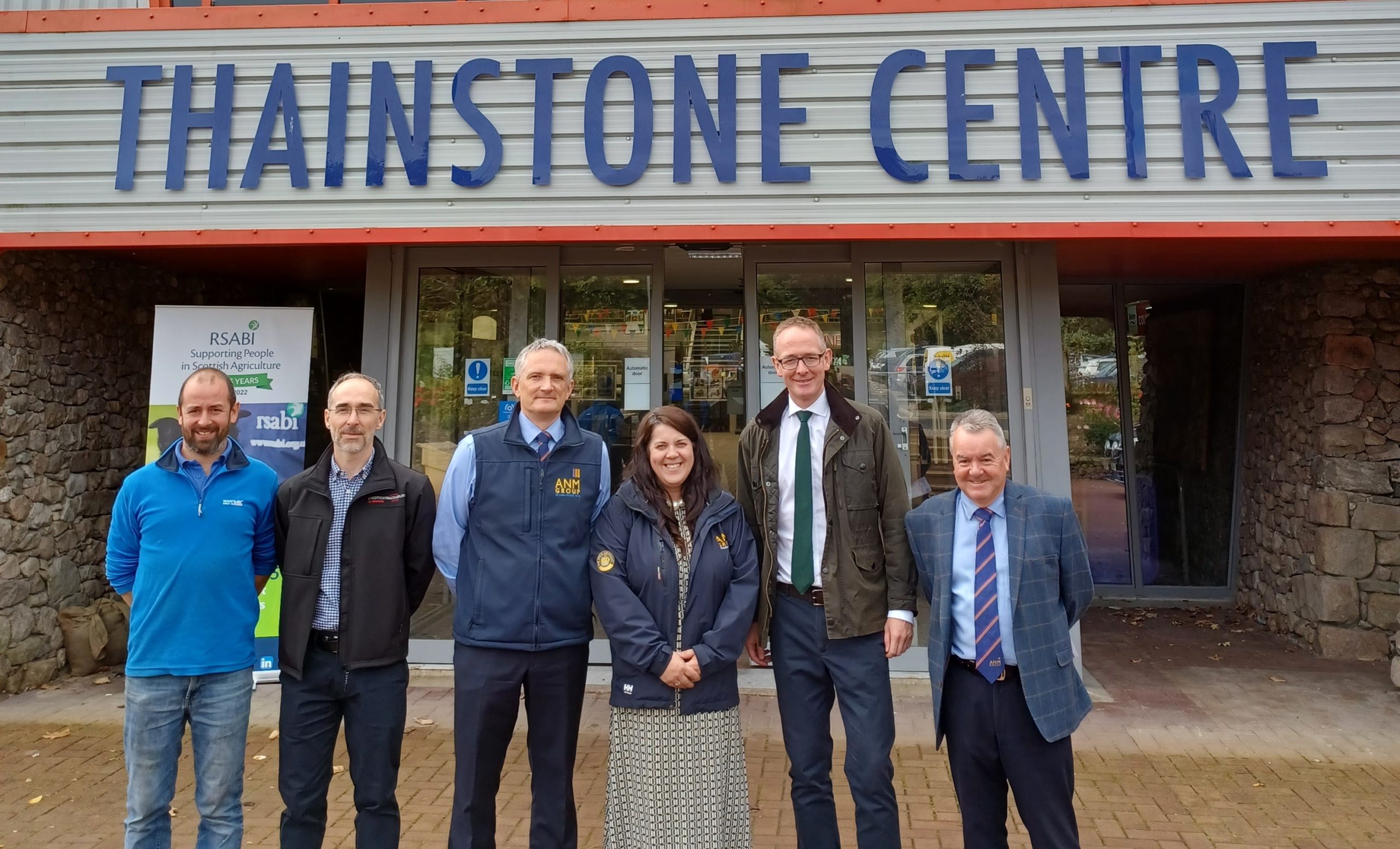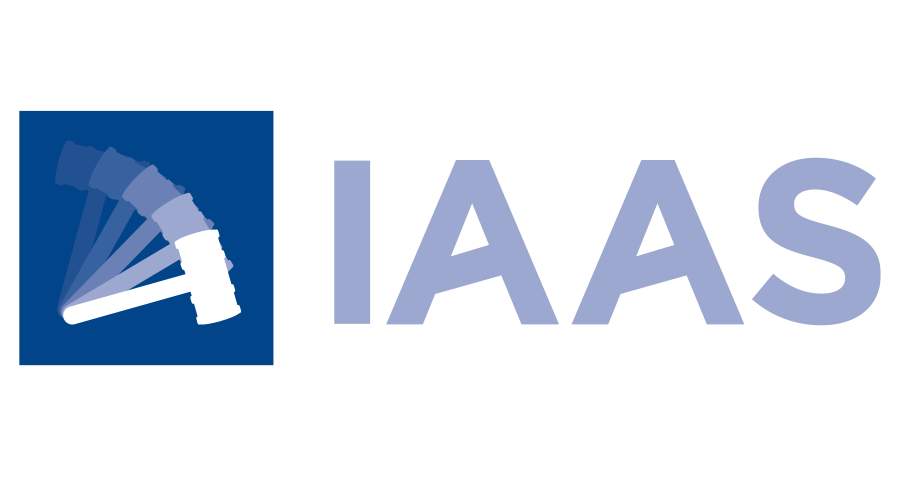The new President of the Institute of Auctioneers and Appraisers (IAAS) met with Under Secretary of State for Scotland, John Lamont MP, at ANM marts at Thainstone to demonstrate how high frequency EID electronic tagging could revolutionise the livestock industry.
With Scottish Government due to announce a date for the compulsory use of ultra-high frequency (UHF) tags in the beef supply chain, Alan Hutcheon, also a Director at ANM which has been the forerunner in trialling the high frequency tagging in a live mart situation, explained:
“High frequency electronic tagging is essential for the future of our industry. Having a single source digital database of all cattle movements will improve the efficiency and traceability across the supply chain, reduce the administrative burden that surrounds it and enhance animal welfare and staff safety. It also has the potential to help reduce red tape around exports and manage disease outbreaks.”
The Institute, which represents the interests of the marts, has been calling on Scottish Government to support the adoption of the UHF technology to improve efficiencies and reduce costs for the sector.
A longstanding member of the Bovine EID Stakeholder Group, an industry group working together with each other and Government on this matter, IAAS Executive Director, Neil Wilson, and the board have also met with and written to various politicians to advocate the practice.
The Institute has also challenged opponents, from across the UK, who are resisting UHF tagging, advocating the merits of a UK-wide system and sharing the investment in the technology to streamline and avoid duplication.
“It’s so impressive and it’s only when you see it in action that you appreciate the savings in time and management, and importantly also for the health and safety for those working in the marts,” explained Mr Hutcheon. “The reader can quickly record numerous animals at a safe distance. It’s quick, it reduces the cross checking and paperwork, and it instantly creates easy traceability throughout the supply chain.”
ANM has been working closely with ScotEID, which is developing the technology, to trial UHF electronic tagging in a commercial situation in conjunction with farms and abattoirs. The technology has been through rigorous testing and continuously iterated over the last 10 years to ensure it is user-friendly, practical and accurate in both farm and mart conditions.
“It was a pleasure to show Mr Lamont and his team around the mart to discuss our industry and to be able to demonstrate so clearly the merits of ScotEID and why we need to fast track it into use, for farmers, for the marts, for abattoirs and meat wholesalers,” said Mr Hutcheon.
ANM has seen significant efficiencies, including in the administration of paper passports. While low frequency tags are widely uses, there is still some resistance from farmers and marts to invest in the UHF technology until there is commitment from Scottish Government.
Mr Hutcheon added:
“Paper passports are costing tens of thousands of pounds to produce every year. If we could redeploy these government funds to support farmers and marts in the uptake of ScotEID, it would significantly support the industry to modernise and be more efficient, traceable, and less costly for all.”
The visit follows other recent engagement with the Scottish Conservative and Unionist Party’s Rachel Hamilton MSP and Finlay Carson MSP. Other visitors to experience the operation have been Government officials and farming stakeholders from across the UK.

